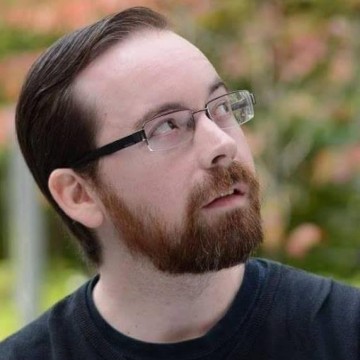Creeptober Night 18: The Bride of Frankenstein (1935)
“I love dead, hate living.”
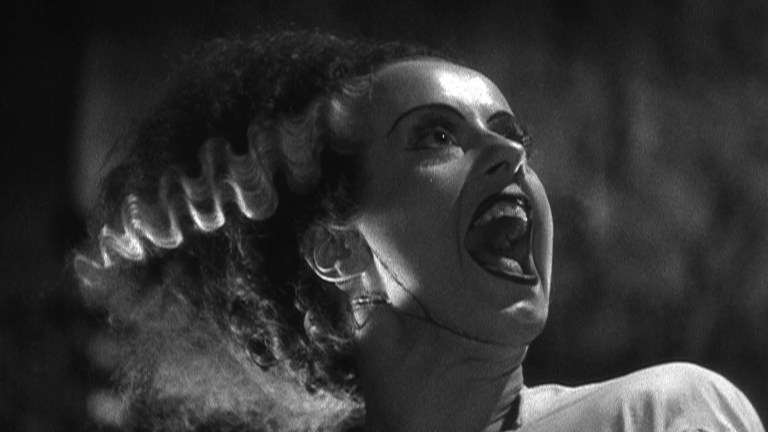
I’ve been looking forward to this weekend of Creeptober. Over the next two days we’ll be watching the two oldest movies in this marathon. I love classic horror, but I don’t always make enough time to watch older movies like these. I have seen both of these movies before, but it’s been a while for each of them. Tonight we begin with an iconic sequel, and a movie that many people consider better than the film that precedes it. Tonight’s Creeptober movie is The Bride of Frankenstein.
Reacting to The Bride of Frankenstein
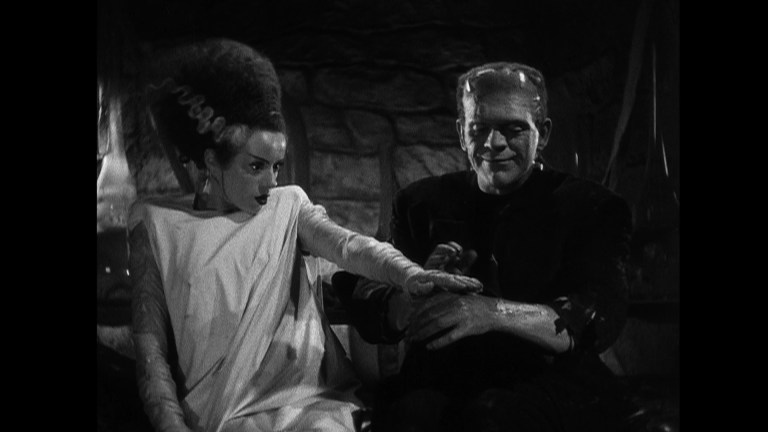
I’ll start by saying that I’m not sure if The Bride of Frankenstein is better than Frankenstein. They’re both amazing, and they approach their stories in very different ways. Frankenstein is darker in tone as a whole, and it feels more solid from start to finish. But when The Bride of Frankenstein is at its best, it’s better than just about any single moment in Frankenstein. So, I won’t choose just one. I love them both equally, for different reasons.
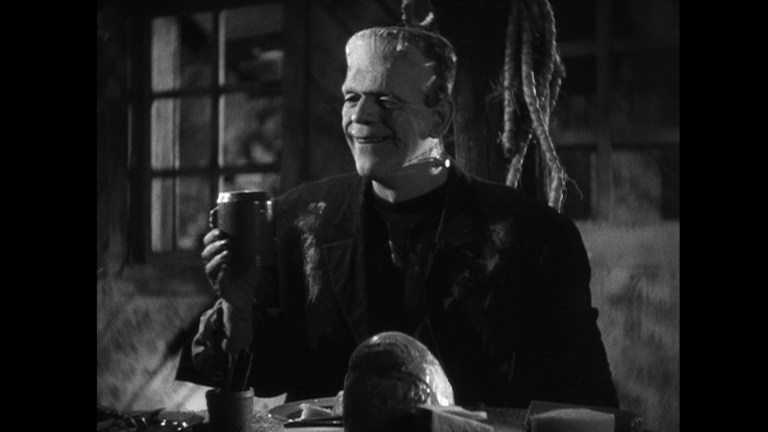
One thing Bride explores more fully the its predecessor is the idea of the Monster as a being who has intelligence and complex feelings. This is touched on in the original, of course, but it’s taken much further in this film. Now, I’m not going to go into some deep analysis of the themes in Bride, because that’s been done over and over in the ninety years since its release. This is one of those films that has been analyzed and over-analyzed to the point where not much more can be said about its deeper meaning, and you can find someone analyzing the film to fit pretty much any interpretation you want.
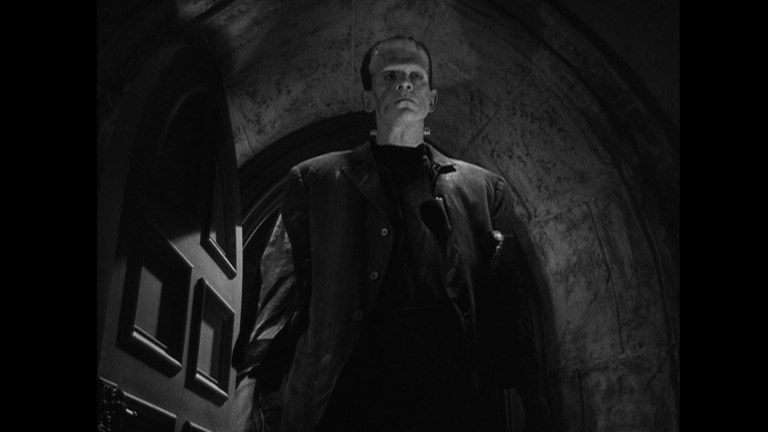
What I will say is, Boris Karloff was a genius, and his acting in this movie is some of his best work. Yes, he’s covered with tons of makeup, but it’s his acting through that makeup which really sells the story of a monster who is more human than most of the rest of the characters populating this world.
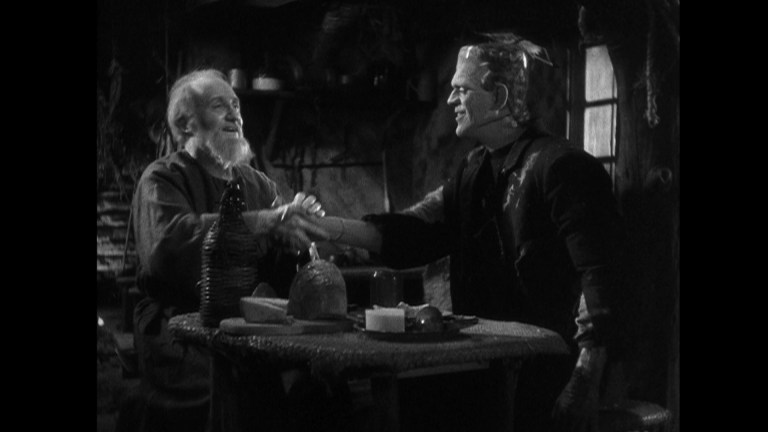
When the Monster meets the blind man, Karloff is able to navigate fear, anger, hope, and child-like glee all within the same scene. The pain and confusion the Monster displays when his friend is taken away is powerful. Seeing the Monster cautiously approach Dr. Pretorius in the crypt with the hope of a new friendship is sweet but sad. And the finale, when he says “we belong dead,” is moving. Like I said, when Bride is at its best, Frankenstein can’t touch it.

Of course, there are some odd quirks about The Bride of Frankenstein. Pretorius’s tiny people in jars are the quirks most often cited. Presenting his experiment as coming from a completely opposite place as Dr. Frankenstein’s (grown from nature and life rather than brought back from death) is an important part of the story, but presenting it on screen in this way was an odd decision. There’s a decent amount of pure comedy in Bride, and the tiny people, the homunculi, are the biggest part of that. I’m not a huge fan of this or some of the other goofy moments (which usually involve Minnie), but the comedy is a rather small part of the film.
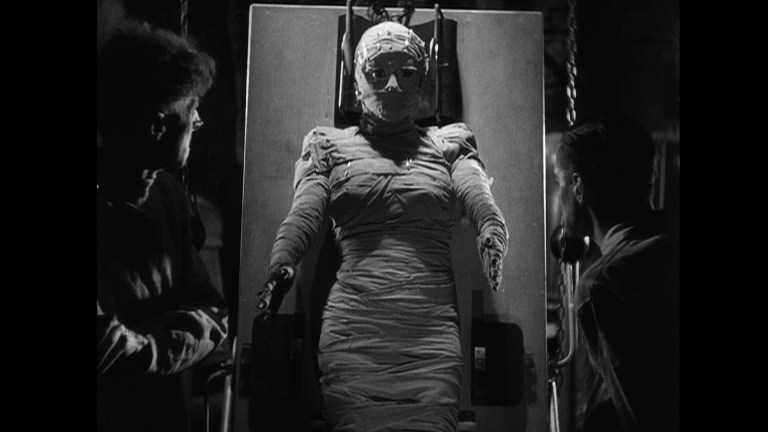
I am a huge fan of the final scene though. The Bride is only on screen for a few minutes, but her impact is enormous. I love how Elsa Lanchester plays the part with mannerisms that feel like a bird looking around in confusion at a world she can barely comprehend. Then when she sees the Monster, she instinctually fears him. It’s like a dagger to the Monster’s heart, and for the audience. From a thematic standpoint, her reaction is perfect.
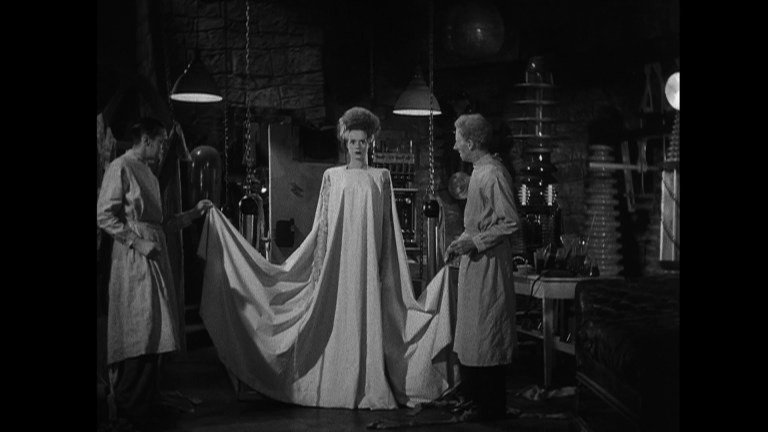
The Bride of Frankenstein emphasizes the fact that the Monster is a human with feelings. It doesn’t matter that he’s cobbled together from corpses and was given a “bad” brain. He feels things, and he has a growing level of autonomy. The film makes emphatic efforts to put this point across for the audience. But the Bride is created for the specific purpose of being the Monster’s companion. The Monster and Pretorius both expect her to just be what they want her to be with no regard for her own feelings or autonomy. Her rejection of the Monster is completely warranted, and it points out the movie’s most devastating point: humanity doesn’t understand the Monster, and the Monster also doesn’t understand what it means to be human. They are all looking inward and expecting others to conform to their own preconceived notions, when if they’d look outside of themselves they might find a way to understand each other.
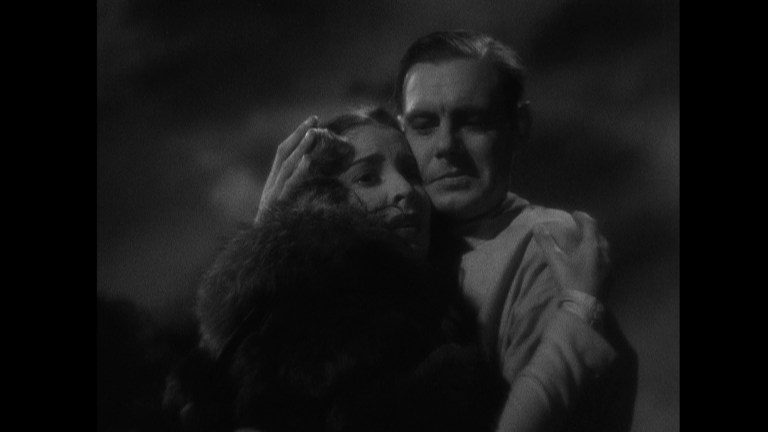
The only person who seems like he’s beginning to understand this is Henry Frankenstein. He’s uncomfortable with everything Pretorius wanted him to do from the beginning. Perhaps Frankenstein can see what is wrong with the world because he seemed to have died, but he came back to life all on his own. He’s crossed the bridge between life and death through natural means, so now he understands.
Or maybe now I’m over-analyzing everything. Either way, The Bride of Frankenstein is fantastic.
